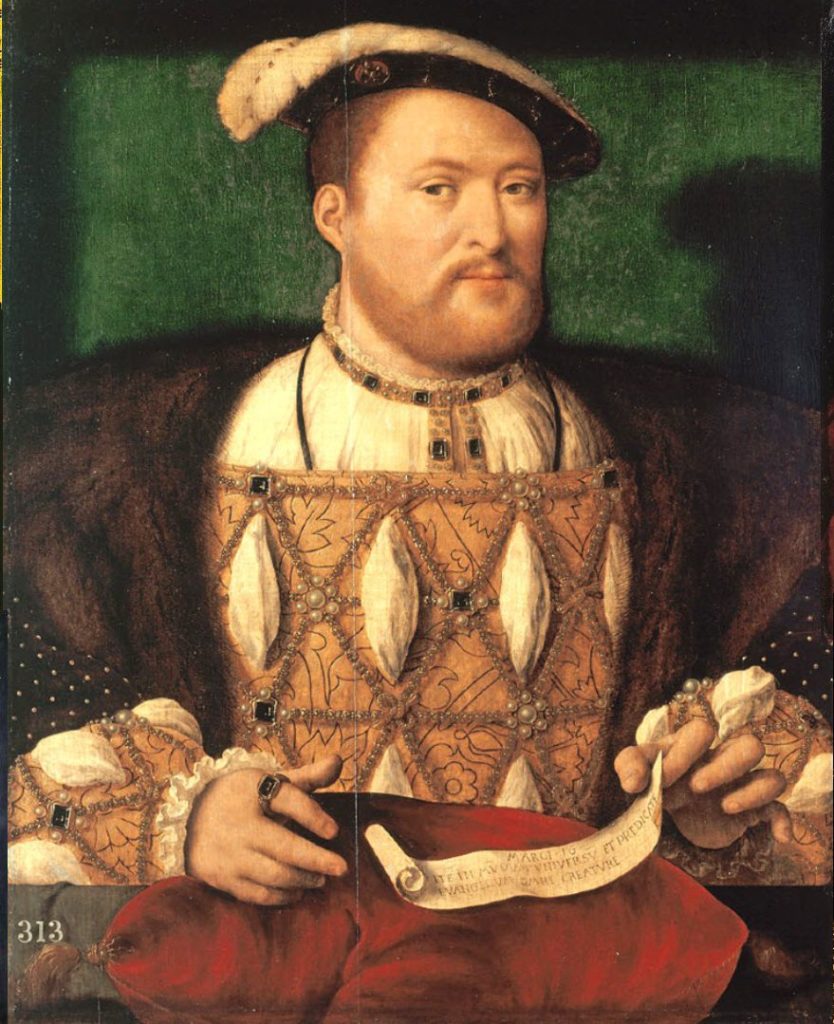
Although Henry VIII is famous for abandoning, beheading and divorcing his wives it seems he didn’t enjoy ‘goodbyes.’ Each of his marriages ended suddenly, without discussion. In most instances he simply left the palace, mounted his horse and rode away. End of relationship. End of marriage.
His battle for a divorce from Katherine of Aragon, his wife for more than twenty years, was a protracted affair, ending with Henry breaking his ties with the Pope and the excommunication of England from the Roman Church. By the time he finally removed himself from the marriage, he was already committed to Anne Boleyn. For months the king and his two ‘wives’ had lived in a sort of Ménage à trois with Catherine trailing in the wake of Henry and Anne. But in June 1531 Henry and Anne rode away from Hampton court, leaving the queen behind. For a few weeks the couple visited several hunting lodges with Anne playing the part of consort. It had long been Catherine’s habit to write to Henry every few days when they were apart, enquiring after his health but this time her letters also expressed her regret that he had not bid her farewell when he departed.
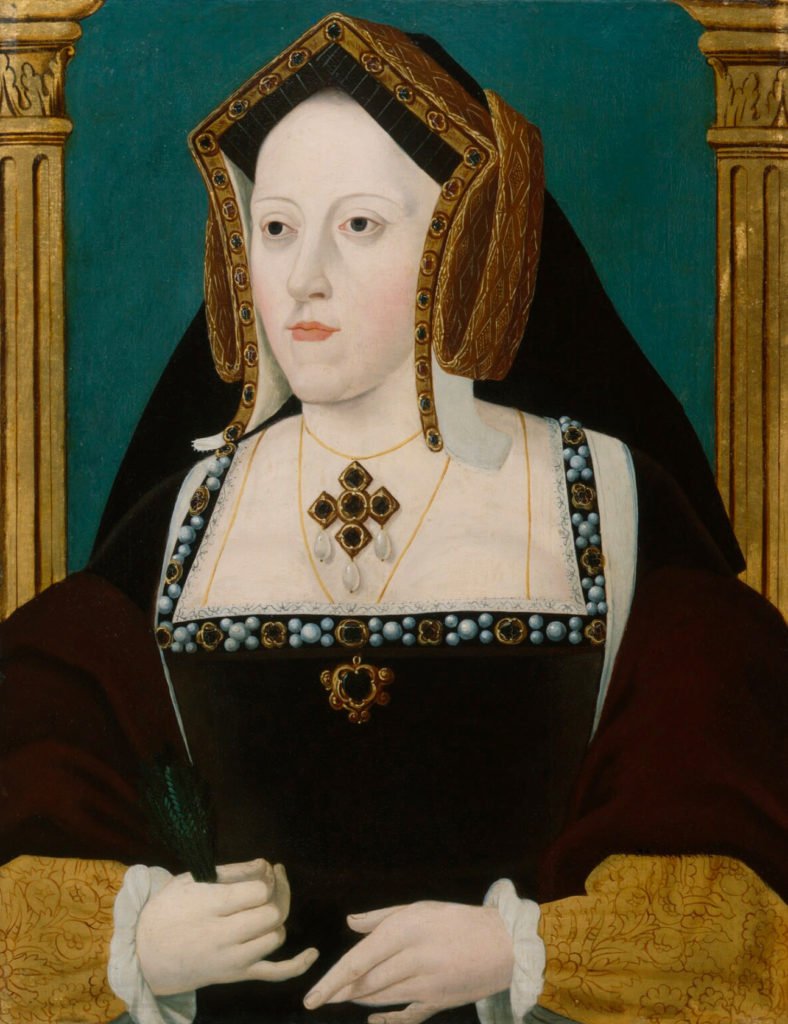
Henry’s response was pitiless, informing her he ‘cared not for her adieux.’ Catherine’s reply illustrates admirable restraint but Henry didn’t not bother to answer; instead she received a letter from the Council which, for the first time failed to address her as ‘Queen.’ A further order demanded that she remove herself to The More in Hertfordshire, and ordered the Princess Mary to go to Richmond. Henry was not only abandoning Catherine but also their daughter Mary, who was never allowed to see her mother again.
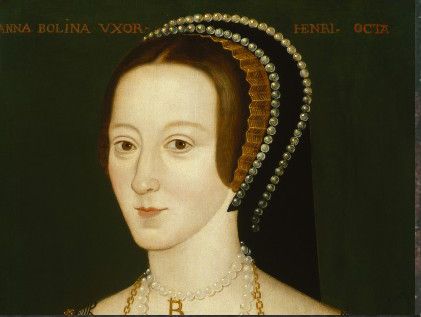
Henry’s marriage to Anne was very different his first. Whereas Catherine had turned a blind eye to the king’s romantic indiscretions, Anne treated the matter very differently. This made his marriage to Anne a roller coaster ride of arguments, fights and reconciliations. There are, and always have been, plenty of marriages like this, so it wasn’t necessarily a sign that they were no longer in love. Since their life together was peppered with disputes, when Anne fell out of favour in May 1536 she had no reason to suspect that it was any more than another tiff. But, after signing the order for her arrest, Henry refused to see or communicate with Anne again. It is tempting to wonder if things would have turned out very differently had she been given the chance to talk her way out of it, as Henry’s sixth wife, Katherine Parr, did in the final years of his reign.
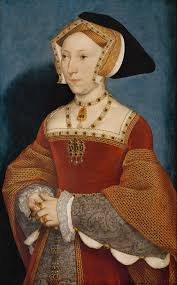
Jane Seymour has always been described as the ‘one he loved best’ yet when she died they had not been married long enough for him to tire of her and since she had just provided the longed for heir she was in high favour at the time of her death. He does seem to have grieved longer for Jane than any other of his wives and did not remarry straight away but we don’t really know if that was the case. Henry delayed his planned departure to Esher by several days while Jane lay on her deathbed and Cromwell was told, ‘If she amend (recover), he will go, and if she amend not, he told me this day, he could not find it in his heart to tarry.” (David Starkey in Six Wives: The Queens of Henry VIII p. 608) In other words, Jane’s death did not interfere with the king’s itinerary but perhaps it is wrong of us to expect it to have. Jane died at 8pm on the same day this message was written. We do not know if Henry was with her but it is unlikely.
I have always questioned Henry’s love for Jane. We tend to think that because he was still in love with her (or at least had not yet found a replacement) he must have loved her more than the others. But, suppose she had survived, who is to say whether or not he would have tired of her and found an excuse to rid himself of her?
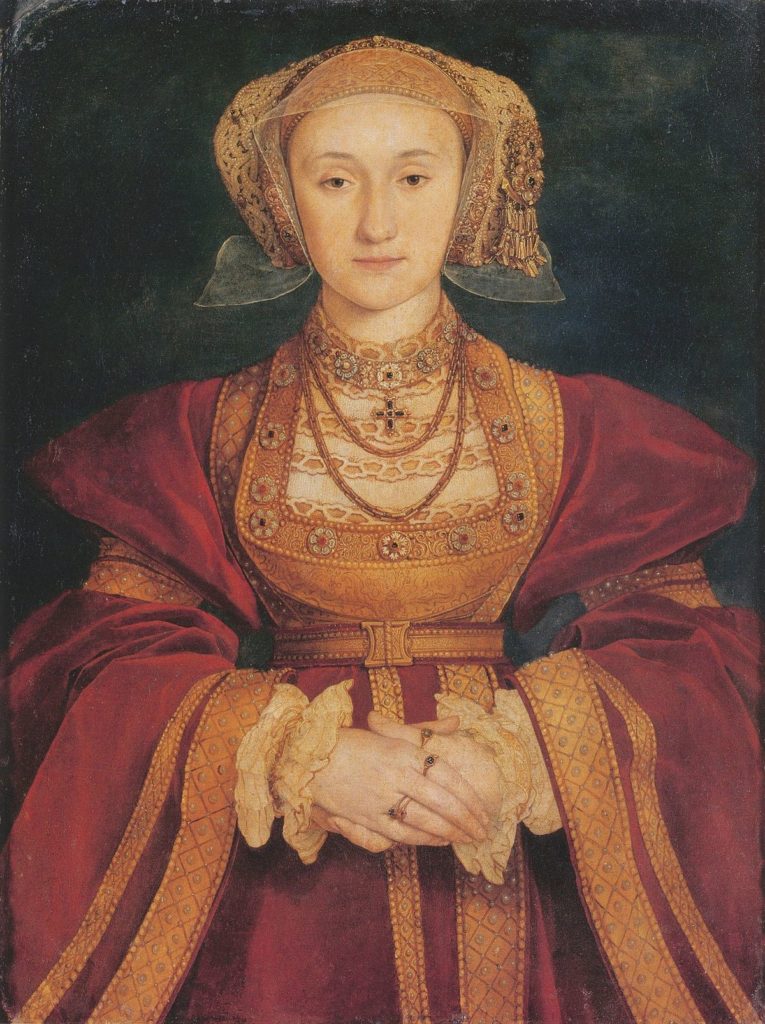
I think we are safe to assume Henry had no love for his fourth wife, Anne of Cleves. Before the marriage had even taken place, Henry wanted an end to it. He raged to his councillors that she did not please him but hampered by the political ties of the union, he was trapped, like a caged lion. The wedding went ahead and the honeymoon night was reputedly a disaster. All over London jousts and celebrations were under way but the king was far from happy. Before the bells had stopped ringing he was already paying court to Catherine Howard at the home of Stephen Gardiner, Bishop of Winchester in Southwark. ‘Anne herself probably understood little of the political storm which raged round her and of which she was the all-too passive cause. She was shrewd enough, however, to notice the King’s attentions to Catherine Howard, and, on 20th June, complained vigorously about them to the Cleves agent in London, Karl Harst. Two days later, she was in better spirits, because Henry had spoken to her kindly. It was the last time she saw him as her husband.” (Starkey) Ordered to leave the court and take up residence at Richmond Palace, Anne was not made aware of the king’s decision to reconsider the marriage until July. Although she was often at court after the annulment, Anne and Henry did not meet again until after the separation was legally finalized.
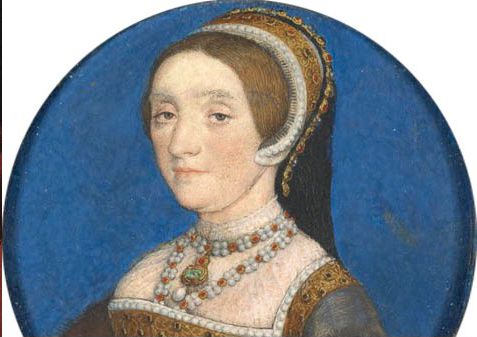
Catherine Howard, as we all know, was accused of adultery and treason. As sad as it is, the charges were probably just. The legend of the little queen running screaming for Henry along the corridors of Hampton court sound as if they are straight from the pages of fiction, and they probably are but the image is a powerful one. For Catherine, coming at the end of a long line of dispatched spouses, there can have been little doubt as to her fate. But, if the story is true, it was a futile attempt to reason with the king. Henry had already fled. Hurt and humiliated, the king lost no time in leaving. On the 5th of November, on the pretext of hunting he ‘dined in a little pleasure-house in one of the parks around Hampton Court. Then, under the cover of night, he left secretly for London.’ (Starkey, p. 671) Catherine never saw him again. After her death, the Spanish ambassador described Henry as suffering ‘greater sorrow and regret at her loss than at the faults, loss of divorce of his preceding wives.’ (Starkey. P. 685) The picture of an ageing broken king mourning his faithless bride is touching but it has to be said his sorrow was more likely to have been of the self-pitying kind.
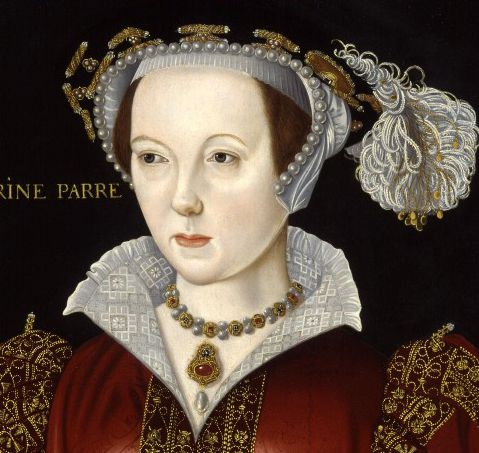
Katherine Parr, Henry’s last queen, was a scholar and a reformer, publishing books and entering the male world of theological debate. This, together with her influence over the ageing king, won her enemies among the conservative faction. Just as with several of her predecessors, moves were made to bring her down. It is possible that Katherine was just too clever, perhaps she irritated Henry with her polished arguments, perhaps she reminded him just a little too much of Anne Boleyn. Whatever the reason, after several years of marriage, Henry came to resent her and this provided her enemies with the opportunity they needed. When Henry complained, in Gardiner’s presence, of the nature of the queen’s conversation Gardiner lost no time in convincing the king to agree to turn against her. Her women were questioned and her books seized, and the queen was to be arrested and sent to the Tower. Luckily for Katherine, a sympathiser got wind of the plan and tipped her off. Katherine went straight to the king but had the sense not to remonstrate with him outright. Instead, when the subject turned to religion, she pretended ignorance, preferring to ‘defer my judgement in this, and all other cases, to our Majesty’s wisdom, as my only anchor Supreme Head and Governor her in earth, next under God.’ (Starkey. P.763) When he questioned her honesty, she went on to claim that she had only ever disputed with Henry to take his mind from his pain, and to try to learn from his own great wisdom. His ego salved and his faith in women restored, Henry and Katherine kissed and made up. Wriothesley came to arrest Katherine while she and Henry were walking in the garden but when he drew out the warrant Henry furiously berated him, calling him a knave and a beast. Wisely, Wriothesley fled the royal presence. On this occasion the queen remained in the King’s favour but as Henry’s health began to deteriorate the couple spent more and more time apart. Henry spent his last Christmas in London, while Katherine was at Greenwich.
He died in January 1547, without saying ‘Goodbye’ to the queen.
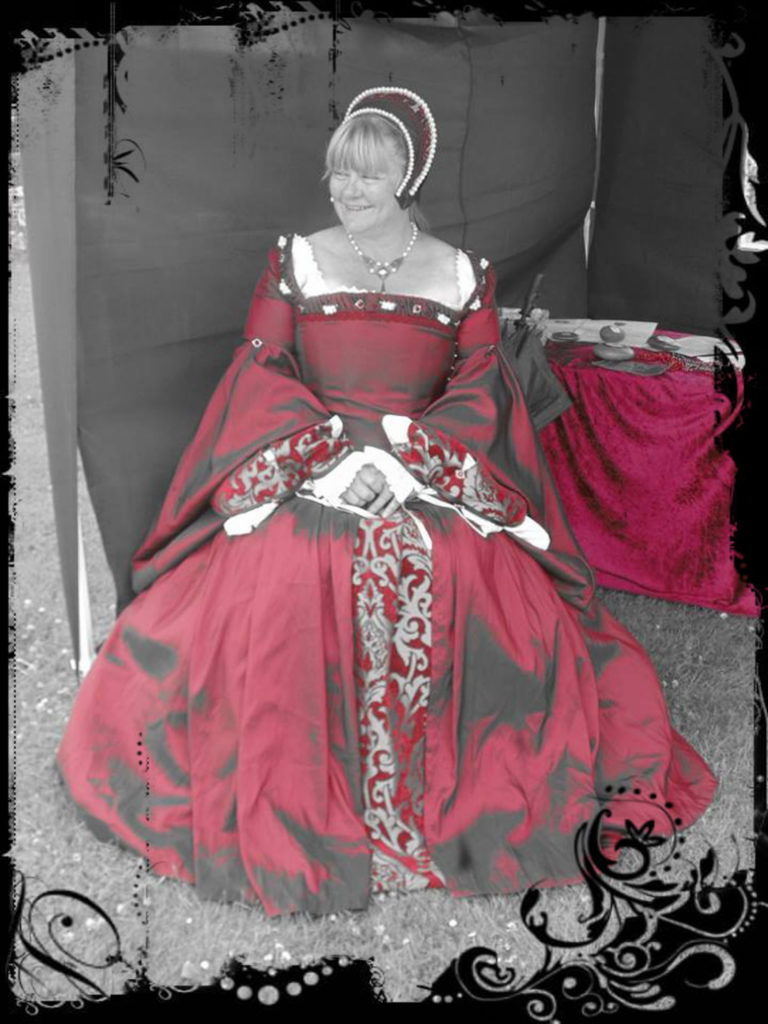
Judith Arnopp is the author of award winning historical fiction. Her novels are written from the perspective of historical women from all walks of life, prostitutes to Tudor queens. Her non-fiction articles feature in various historical anthologies, magazines and historical blogs.

Connect with Judith Arnopp
Webpage: http://www.judithmarnopp.com
Author page: author.to/juditharnoppbooks
Blog: http://juditharnoppnovelist.blogspot.co.uk/
twitter@juditharnopp
Aw, thank you, that’s lovely to hear 😊 so glad you enjoy my work. I’ve got my head down working on another, this time about Catherine of Aragon and I’ve taken a different perspective as usual but that’s a surprise for now. 😉
This is fascinating, Judith. I’d swallowed the tale of his undying love for Jane Seymour but this account is much more plausible. Your books on this period capture the multi-faceted personalities of the people involved and I do genuinely become so caught up in their stories that I lose sight of the dry history text books and am wholly caught up in their world and time.
I think he had already started to tire of Jane Seymour. On one occasion he said to her “Dost remember what happened to thy predecessor? Forget it not!”. A pregnancy, of course, always brought a wife a temporary reprieve with him.
yes, I am sure she would have done something wrong if she’d lived longer. The reprimand came when she was trying to speak up for the dispossed monks and nuns during the Reformation. Henry’s whole reign is so fascinating, and looking on the bright side, if he’d have been a nice chap I’d have nothing to write about – lol